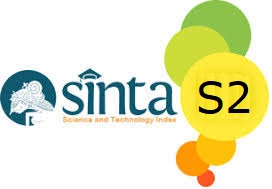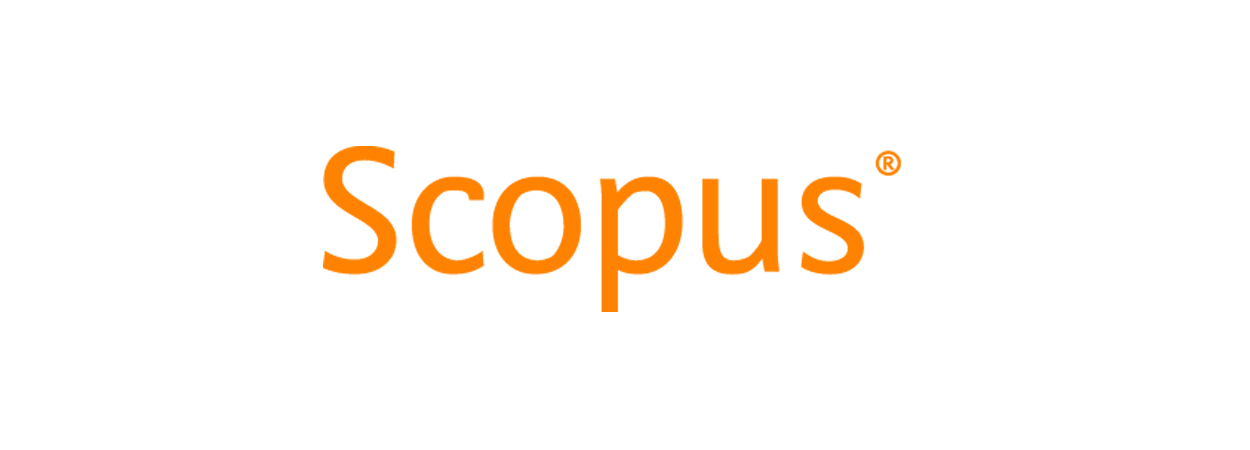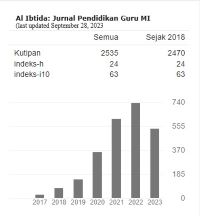Developing Entrepreneurship Education Model in Improving the Skills of Recycling of Elementary School Students
(1) Universitas Negeri Jakarta Universitas Muhammadiyah Prof. DR. HAMKA
(2) Universitas Negeri Jakarta
(3) Universitas Negeri Jakarta
(*) Corresponding Author
Abstract
Abstract
This study was about developing an entrepreneurial education model in improving the recycling skills of elementary school students as well as to find out the improvement of aspects of knowledge, aspects of attitudes, and aspects of student skills through the entrepreneurship education model. This development research adopted the development design of Borg & Gall. Model validation is done through expert judgment. Model trials were conducted in class V (five) in three elementary schools. Research data obtained through observation, questionnaires, and interviews. The results of this study indicate that the development of entrepreneurship education models in improving students' recycling crafts skills in primary schools based on the results of expert validation by 66.94% with a high category. The entrepreneurship education model developed can also increase the entrepreneurial knowledge aspect by 76.16%, the attitude aspect by 79.84%, and the entrepreneurial skills aspect by 82.64%. This means that the increase in all three aspects is in the high category. Therefore, this entrepreneurship education model can be an alternative in developing entrepreneurship education in elementary schools.
Keywords: entrepreneurship education, recycling crafts, elementary school students.
Abstrak
Penelitian ini bertujuan untuk mengembangkan model pendidikan kewirausahaan dalam meningkatkan keterampilan kerajinan recycling siswa sekolah dasar sekaligus untuk mengetahui peningkatan aspek pengetahuan, aspek sikap, dan aspek keterampilan siswa melalui model pendidikan kewirausahaan tersebut. Penelitian pengembangan ini mengadopsi desain pengembangan dari Borg & Gall. Validasi model dilakukan melalui expert judgment. Uji coba model dilakukan di kelas V (lima) di tiga Sekolah Dasar. Data hasil penelitian diperoleh melalui observasi, angket, dan wawancara. Hasil penelitian ini menunjukkan bahwa pengembangan model pendidikan kewirausahaan dalam meningkatkan keterampilan kerajinan recycling siswa di sekolah dasar berdasarkan hasil validasi ahli sebesar 66,94 % dengan kategori tinggi. Model pendidikan kewirausahaan yang dikembangkan juga dapat meningkatkan aspek pengetahuan kewirausahaan sebesar 76,16%, aspek sikap sebesar 79,84%, dan aspek keterampilan kewirausahaan sebesar 82,64%. Artinya peningkatan ketiga aspek tersebut dalam kategori tinggi. Oleh karena itu, model pendidikan kewirausahaan ini dapat menjadi alternatif dalam mengembangkan pendidikan kewirausahaan di sekolah dasar.
Kata kunci: pendidikan kewirausahaan, kerajinan daur ulang, siswa sekolah dasar.Â
Full Text:
PDFReferences
Agustina, D. A. (2017). Model Pembelajaran untuk Mengenalkan Kewirausahaan pada Siswa Sekolah Dasar Kelas Rendah. Bangun Rekaprima: Majalah Ilmiah Pengembangan Rekayasa, Sosial dan Humaniora, 3(2, Oktober), 43-56.
Aslan, S. (2010). The views of primary school 4thand 5thyear students and teachers regarding entrepreneurship. In Procedia - Social and Behavioral Sciences (Vol. 9, pp. 1736–1740). https://doi.org/10.1016/j.sbspro.2010.12.392.
Azizi, M., & Mokhtari, N. (2018). Integrated Approach as a Way of Overcoming Entrepreneurship Education Challenges in Elementary Schools in MENA Countries: Evidence from Iran. In Entrepreneurship Education and Research in the Middle East and North Africa (MENA) (pp. 155-168). Springer, Cham.
Baek, M. J., Kang, K. K., & Yi, B. J. (2017). A Study on the Current status and the Educational Needs of Entrepreneurship Education Program: Focused on Elementary and Secondary School Teachers. Journal of the Korea Academia-Industrial cooperation Society, 18(12), 564-574.
Bahmani, N., Arasti, Z., & Hosseini, S. R. (2018). Entrepreneurship education in elementry schools in order to improve entrepreneurial attitude. Journal of Entrepreneurship Development, 10 (4), 555-573.
Borg, W. R. and M. D. G. (1983). Educational Research: An Introduction, 4th edition. Michigan: Longman Publisher.
de Lourdes Cárcamo-SolÃs, M., del Pilar Arroyo-López, M., del Carmen Alvarez-Castañón, L., & GarcÃa-López, E. (2017). Developing entrepreneurship in primary schools. The Mexican experience of “My first enterprise: Entrepreneurship by playingâ€. Teaching and Teacher Education, 64, 291-304.
Dewanti. (2017). Pengembangan model Kewirausahaan di Sekolah Dasar Kelas Rendah. Jurnal Bangun Rekaprima, 3(1), 80.
Dewi, L., Yani, A., & Suhardini, A. D. (2015). Model pendidikan karakter dan kewirausahaan berbasis etnopedagogis di sekolah dasar kampung Cikondang. MIMBAR: Jurnal Sosial dan Pembangunan, 31(2), 399-408.
Hassi, A. (2016). Effectiveness of early entrepreneurship education at the primary school level: Evidence from a field research in Morocco. Citizenship, Social and Economics Education, 15(2), 83-103.
Huber, L. R., Sloof, R., & Van Praag, M. (2014). The effect of early entrepreneurship education: Evidence from a field experiment. European Economic Review, 72, 76-97.
Irawan, A., & Mulyadi, H. (2016). Pengaruh Keterampilan Wirausaha terhadap Keberhasilan Usaha (Studi Kasus pada Distro Anggota Kreative Independent Clothing Kommunity di Kota Bandung). Journal of Business Management and Entrepreneurship Education, 1(1), 213–223.
Kirkley, W. W. (2017). Cultivating entrepreneurial behaviour: entrepreneurship education in secondary schools. Asia Pacific Journal of Innovation and Entrepreneurship.
Mulyani, E. (2011). Model pendidikan kewirausahaan di pendidikan dasar dan menengah. Jurnal Ekonomi dan Pendidikan, 8(1).
Putra, H. P., & Yuriandala, Y. (2010). Studi Pemanfaatan Sampah Plastik Menjadi Produk dan Jasa Kreatif. Jurnal Sains &Teknologi Lingkungan, 2(1), 21–31. https://doi.org/10.20885/jstl.vol2.iss1.art3.
Putri, R. F. (2018). Pelatihan Pemanfaatan Barang Bekas Menjadi Barang Yang Bernilai Ekonomi. In Amaliah: Jurnal Pengabdian Kepada Masyarakat (Vol. 2, pp. 150–155). https://doi.org/10.32696/ajpkm.v2i1.107.
Robert. (2019). Republika. CO. ID. Manado.
Shakir. (2020). Hasil wawancara pendidikan kewirausahaan.
Siwiyanti, L., & Uswatun, D. A. (2016). Mengembangkan Pendidikan Kewirausahaan Melalui Pembelajaran IPA di SD. PEDAGOGIK (Jurnal Pendidikan Sekolah Dasar), 4(2), 58-70.
Sukardi, S., Ismail, M., & Suryanti, N. M. N. (2014). Model Pendidikan Kewirausahaan Berbasis Keterampilan Lokalbagi Anak Putus Sekolah pada Masyarakat Marginal. Jurnal Cakrawala Pendidikan, 33(3).
Tanan, A. (2010). Antonius Tanan Mendidik “Entrepreneurâ€". Retrieved February 22, 2010,from https://edukasi.kompas.com/read/2010/02/22/07371843/Antonius.Tanan.Mendidik.quot.Entrepreneur.quot.
Usman, et.all. (2010). Pengembangan Pendidikan Kewirausahaan. Jakarta: Pusat Kurikulum Balai Litbang Kementerian Pendidikan Nasional.
Wibowo, A., & Saptono, A. (2018). Does entrepreneurial leadership impact on creativity and innovation of elementary teachers? Journal of Entrepreneurship Education, 21(2).
Wirandana, E., & Hidayati, S. (2017). Pengaruh Pendidikan Kewirausahaan Terhadap Niat Berwirausaha. EDUKA: Jurnal Pendidikan, Hukum, dan Bisnis, 2(2).
Yohanna, L. (2018). Urgensity of entrepreneurship education on elementary school education in improving competitiveness. Journal of Education Kahuripan, 1(2), 36–49.
DOI: 10.24235/al.ibtida.snj.v7i1.5127
Article Metrics
Abstract view : 208 timesPDF - 95 times
Refbacks
- There are currently no refbacks.
Copyright (c) 2022 Al Ibtida: Jurnal Pendidikan Guru MI

This work is licensed under a Creative Commons Attribution 4.0 International License.
Al Ibtida: Jurnal Pendidikan Guru MI Indexed by:
Editorial Office:
FITK Building, 5th Floor, Department of Madrasah Ibtidaiyah Teacher Education, Faculty of Tarbiyah and Teacher Training, UIN Siber Syekh Nurjati Cirebon. Perjuangan Street of Sunyaragi, Cirebon City, West Java, Indonesia 45132. Phone. 0231-481264, Fax. 0231-489926, Email: alibtida@syekhnurjati.ac.id
Al Ibtida: Jurnal Pendidikan Guru MI is licensed under a Creative Commons Attribution 4.0 International License.



















